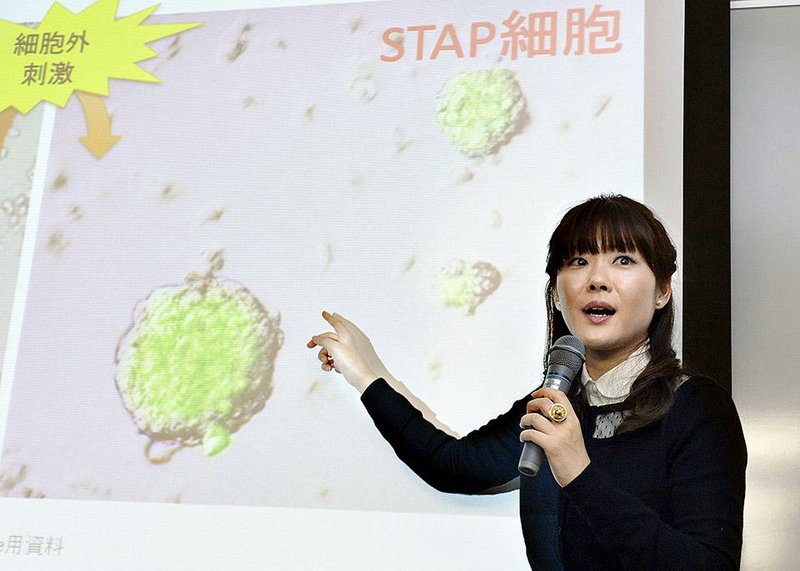TOKYO -- A Japanese government-backed research institute accepted the resignation of one of its highest-profile scientists Friday after she failed to replicate research results that were once hailed as a breakthrough in stem cell research.
The institute, Riken, had given the researcher, Haruko Obokata, 31, three months to repeat the experiments that were the basis for her claimed discovery earlier this year of a remarkably simple way to make stem cells, a type of cell that could hold the key to futuristic medical treatments.
On Friday, the institute announced that she had failed to replicate a new type of stem cell known as STAP cells, for stimulus-triggered acquisition of pluripotency, a term that refers to the cells' ability to turn into any other type of cell.
That ability allows stem cells to grow into any kind of cell, like muscle or brain cells.
By appearing to offer an easier way to make stem cells, Obokata's claimed discovery of STAP cells seemed to bring doctors a step closer to medical treatments in which they could regenerate damaged nerves or other tissues or even grow entire organs.
However, at a news conference in Tokyo on Friday, Riken officials said they had concluded that there was little likelihood that such STAP cells actually exist.
Bowing in apology, they also said they had accepted the resignation of Obokata, a stem cell biologist at the institute's Center for Developmental Biology in Kobe.
After her initial claim that her research team had made the breakthrough, Obokata was lauded for establishing Japan as a leader in research into stem cells and the promising new field of regenerative medicine.
She also became an instant media star, winning praise as a woman who had succeeded in the male-dominated world of science and who seemed destined for a Nobel Prize.
But her claims of creating STAP cells quickly began to unravel after revelations that she had altered or misrepresented illustrations in two research papers that appeared in the journal Nature. In the spring, Riken concluded that the papers were so riddled with problems that they should be retracted.
In September, Riken gave Obokata the chance to salvage her reputation by reproducing the results in a specially built laboratory, where she was constantly monitored by scientists and surveillance cameras.
However, her hopes for redemption seemed to take an ominous turn a month later when her supervisor at Riken and a co-author of her papers, the biologist Yoshiki Sasai, committed suicide.
On Friday, Riken officials said they had decided to halt any further efforts to reproduce STAP cells.
In a measure of how the scandal has damaged the reputation of Japanese scientific research, the minister of education, science and technology, Hakubun Shimomura, weighed in to express regret over the incident and criticize Obokata.
"Misconduct cannot be tolerated in the world of science," Shimomura said.
Obokata did not attend the Riken news conference or appear in public Friday.
Instead, she released a statement in which she said she was "perplexed" by her own failure to verify her research results.
"I feel very responsible for causing trouble to the institute and many other people, and cannot apologize enough to them," said the statement, carried by Japan's Kyodo news agency.
The statement of contrition was a reversal from Obokata's previously spirited defense of her research.
At a news conference in April, she claimed to have created STAP cells in the laboratory "more than 200 times."
In her papers, Obokata claimed to have succeeded in finding what appeared to be a fast and easy way of creating stem cells from regular mouse cells, by immersing them in an acidic bath.
However, when she tried to reproduce these STAP cells in the specially supervised laboratory, Obokata failed to make cells that were capable of developing into multiple types of tissue, as true stem cells can, Riken said.
A separate group of researchers also failed to replicate the results by following Obokata's steps as described in her papers, the institute said.
A Section on 12/20/2014

